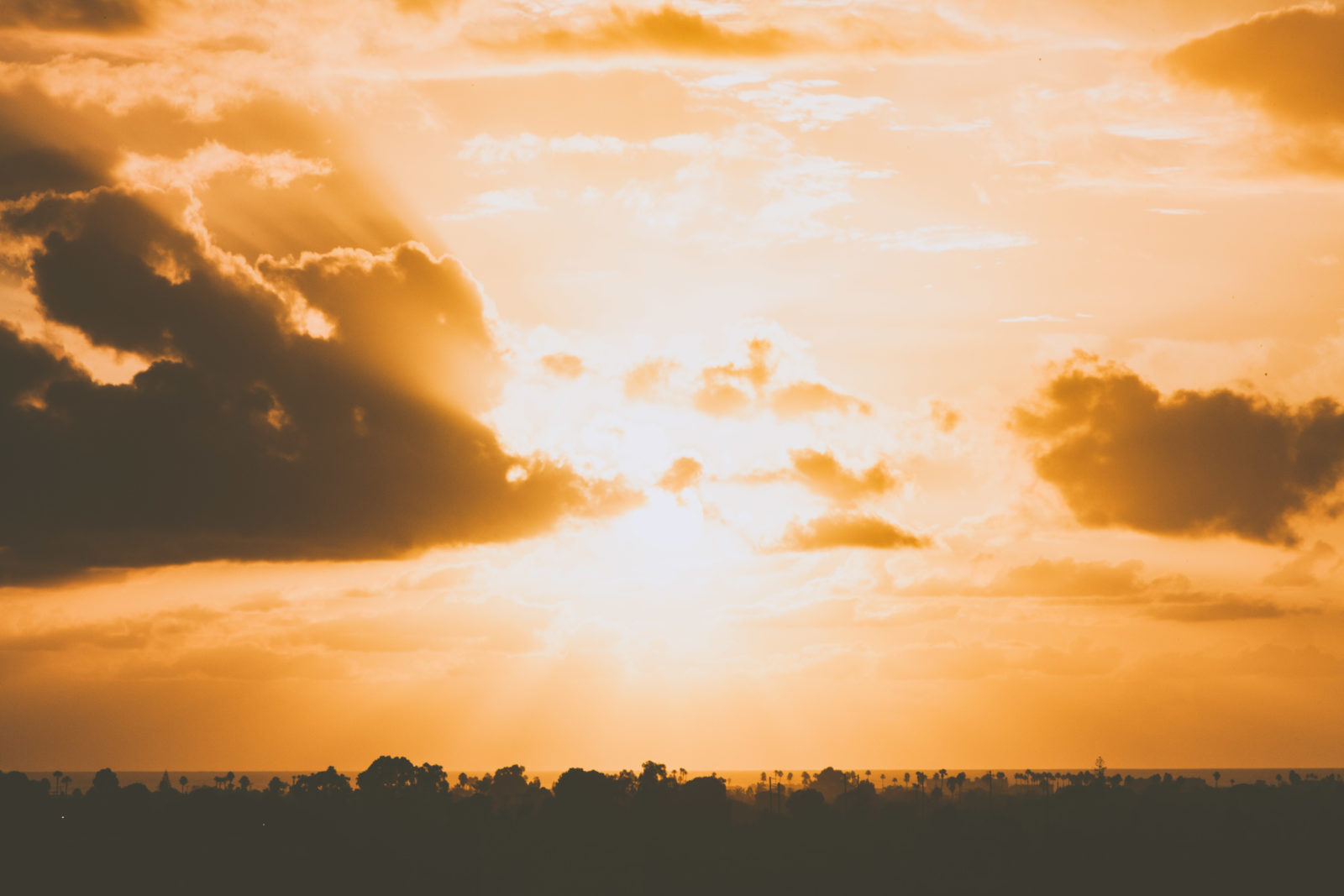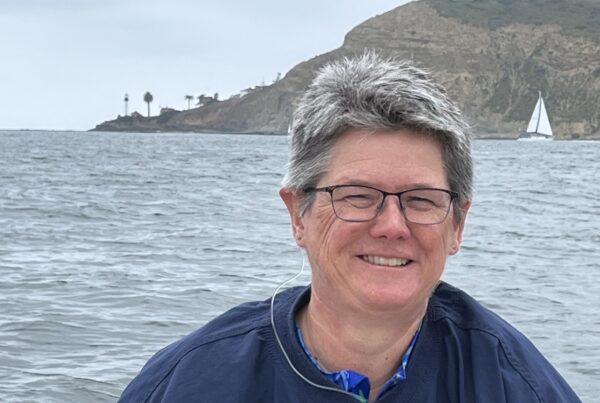A s the daughter of a farm boy turned Christian Reformed church planter, then later attending an inner city outreach chapel, I wasn’t aware of the liturgical calendar—not even of Advent. I was fifty years old before I’d heard of “The Hanging of the Greens.”
That’s a big, happy, bustling, busy day for us at Bellevue Reformed Church, and it’s been happening here time out of mind, so I’ve learned to love it. Long extension ladders appear and men climb them in order to walk around on a narrow ledge high above the pews hanging garlands. A tree is assembled in the front of the sanctuary and decorated with lights and white and silver Chrismon ornaments. Another tree—“the hat and mitten tree”—is put up in the coffee fellowship room. Over the next four weeks its branches will fill up with warm accessories for the nurse at the local elementary school to hand out as needed.
A standing Advent wreath with fat candles and two heavy old candelabra are placed on sheets of waxed paper (we’re okay with coffee and juice stains on the carpet; candle wax is another matter).
The day’s highlight is camel herding. Our three immense wood-and-papier-mâché camels must be carefully, laboriously carried up from the basement. Each has its own assigned place in the sanctuary. The one on wheels stays in the back corner because during the pageant, the wise men and/or women will push it to the manger. (The camels have looked particularly fine the last couple Advents; Diane refurbished them with fresh reins and bejeweled saddles.)
At home, alone in the dark early hours, I light our family Advent wreath and wade into the wonder of God coming here so vulnerably. Every morning—no matter what circumstances are mine—joy washes over me. We have a God who comes and who comes right here, to us, right into our need! Joy to the world!
And yet Advent has a disconcerting double significance. There’s the other advent: Jesus’s second coming, the one that hasn’t happened yet. The coming in which we put our hope. The coming we look forward to. Right?
So what is this vague uneasiness I feel? Why do I need to make an effort to look forward to Jesus’s second coming? Don’t I yearn to “look upon his face, the One who saved me by his grace,” as that old song says?
I determine to track this down. I will learn to look forward to Christ’s coming with whole-hearted breathless anticipation. It’s crazy not to.
Not because that day is unavoidable, although it is, but because it will be everything I’ve always wanted for the people I care about and for myself and for the world. It won’t be just a sigh of relief; it will be “sounds of joy and gladness, of the voices of bride and bridegroom” (Jeremiah 33:11, NIV). It will be visually stunning, our palates will come alive, our ears will hear harmonies and resonance more richly than ever before, fragrances will delight us, it will be good beyond imagining.
This coming will usher in an entirely new reality for the whole world—even and especially for the poor and the least: those children with the hollow faces and big pleading eyes, and those migrating families trudging mile after weary mile, fleeing brutality and violence. Can you imagine their relief?
And try to imagine this: it will be clear to us all who Jesus is. We will see him!
So why the uneasiness?
I think I’ve tracked it down: when I realize that this second coming of Jesus Christ is going to happen, when I realize that it will happen in real time and that the person I’ll be when it happens is … well, me… I’m anxious! I won’t know how to behave. On that day, everything will be true, authentic, and I’m not entirely sure that I am either of those. I instinctively want to double over and protect myself—to hide something, I guess.
An old book by M. Scott Peck catches my eye: Gifts for the Journey: Treasures of the Christian Life. In the chapter entitled “Guilt,” Peck writes, “This genuine awareness of one’s own shortcomings is … not pleasant. … It is not pleasant to be aware of oneself as a naturally lazy, ignorant, self-centered being who routinely betrays its Creator, its fellow creatures, and even its own best intentions. Yet this unpleasant sense of personal failure and inadequacy is, paradoxically, the greatest blessing a human being can possess.”
M. Scott Peck goes on to encourage readers to be willing “to suffer the discomfort of significant self-examination.” Then he reminds us of the words of St. Therese of Lisieux: “If you are willing to serenely bear the trial of being displeasing to yourself, you will be for Jesus a pleasant place of shelter.”
The fact that we both want Jesus and feel apprehensive won’t deter him from coming for us. The fact that we know him and don’t know him is inevitable; it’s the only way it can be between tiny created things like us and the infinite life-giving God.
Julian of Norwich, the 14th-century Christian mystic, says:
“And thus I saw Him and I sought Him,
and I possessed Him and I lacked Him.
And this is, and should be, our ordinary behavior in this life,
as I see it. …
Because He wills that we believe that we experience Him
constantly (although we imagine that it is but little)
and by this belief He causes us evermore to gain grace, because
He wishes to be seen and he wishes to be sought,
He wishes to be awaited and He wishes to be trusted.”
Just think: Jesus has wishes that I’m capable of granting!
“Maranatha! Come, Lord Jesus!”
Sharon Scheenstra
Sharon enjoys being great-grandmother in a colorful mix-and-match family. That family and the homeless women she lived with for 26 years as housemother for the Next Door shelter in Kalamazoo, Michigan, provided a spiritual formation she’s so glad to have had. Presently she’s reveling in being Rich’s partner as he pastors Bellevue Reformed Church in Schenectady, New York.



